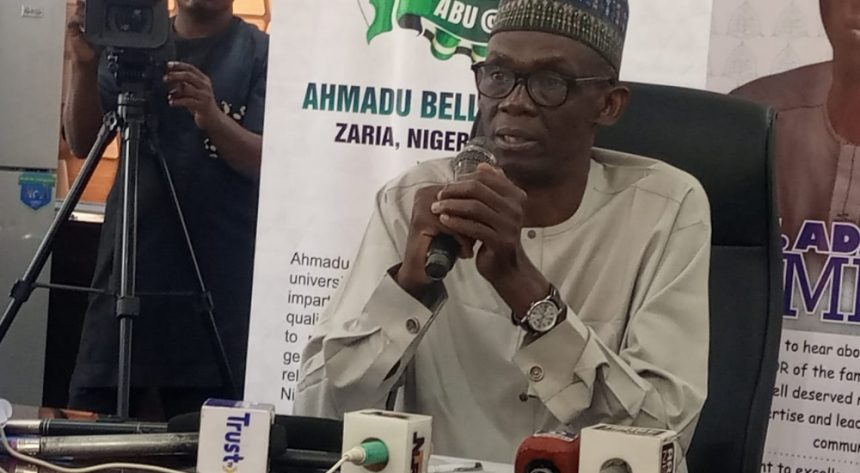Ahmadu Bello University (ABU), Zaria, says it spends nearly ₦4 billion annually on electricity, a situation the Vice Chancellor, Prof. Adamu Ahmed, described as crippling and unsustainable.
“The university spends close to ₦4 billion every year on energy. This figure is not only shocking but clearly unsustainable. It is crippling our operations and undermining our ability to deliver quality education and conduct meaningful research.”
Speaking at a press conference to mark ABU’s 63rd anniversary, Ahmed said the institution could no longer rely on the national grid, noting that it had begun transitioning to renewable energy to reduce costs and achieve stability.
“We have embarked on a renewable energy drive to achieve self-reliance. ABU is taking its destiny into its own hands while continuing to seek external support to sustain growth.”
He disclosed that the Federal Government had provided ₦1 billion through the Tertiary Education Trust Fund (TETFund) to ease the university’s energy burden, while a 10-megawatt solar project had been approved to provide stable power. Members of the university’s alumni, particularly the SBS Class of 1975, are also supporting a solar-powered CBT centre.
Reflecting on ABU’s founding vision, Ahmed said the university was established in 1962 by the late Premier of Northern Nigeria, Sir Ahmadu Bello, to serve as a bridge of unity and progress.
“Sir Ahmadu Bello founded ABU to train the manpower required for the development of Northern Nigeria and, by extension, the whole country. He envisioned an institution rooted in service, excellence, and unity.”
He lamented that insecurity and poverty had slowed the North’s development, stressing that ABU would intensify research, agricultural innovation, and policy advocacy to address those challenges.
“Insecurity and poverty have undermined the North’s development and affected educational growth. ABU will intensify research, agricultural innovation, and policy advocacy to help restore hope and stability to our region.”
Ahmed said ABU remains the most resource-endowed agricultural research institution in West Africa, with facilities such as the Institute for Agricultural Research and the National Animal Production Research Institute.
“No other university in West Africa has the kind of agricultural research capacity we possess. We have the knowledge, the manpower, and the facilities to drive food security and rural development.”
He added that Times Higher Education ranked ABU as Nigeria’s best public university in 2025, with the institution securing over $20 million in international research grants and registering more than 30 patents.
“Funding remains a major challenge. We are therefore focusing on digital education, commercialising research, and nurturing start-ups from our innovations to make ABU more self-sustaining.”
The Vice Chancellor urged alumni to support their alma mater through endowments, donations, and mentorship.
“Our alumni are ABU’s greatest strength. The Sardauna gave you an opportunity; now it’s time to give back. You have the resources, the influence, and the talent to secure the future of this great university.”
As ABU celebrates its 63rd anniversary, Ahmed reaffirmed the university’s commitment to unity, service, and excellence.
“We have come a long way, but the journey continues. ABU will keep shining as a beacon of hope, knowledge, and national integration.”



